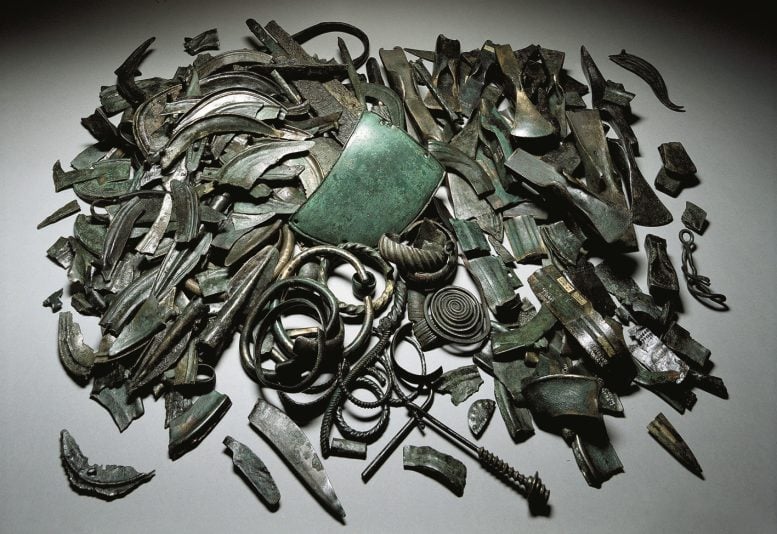
Researchers, including those from Göttingen University, suggest that modern behavior influences ancient economies.
A study by the Universities of Göttingen and Salento reveals that Bronze Age Europeans may have operated under a market economy, challenging the notion that such systems only arose with modern states and coinage.
What would it be like if a ‘Market Economy’ had always been in place? Researchers from the Universities of Göttingen in Germany and Salento in Italy explored this by examining the daily expenditures of people during the Bronze Age. Their findings indicate that the spending patterns of Europeans over 3,500 years ago closely resemble those of modern times. The study’s results were published in Nature Human Behaviour.
The study analyzed more than 20,000 metal objects from more than 1,000 hoards that were buried in Italy, Switzerland, Austria, Slovenia, and Germany between around 2,300 BC and 800 BC. The researchers used a statistical technique to determine if the analyzed objects are multiples of a unit of weight. They found that starting around 1,500 BC, metal objects were intentionally fragmented in order to obtain multiples of the weight unit of roughly 10 g – a unit which was used everywhere across Europe. This indicates that metal fragments circulated as money. Then they analyzed the statistical distribution of the daily expenses of prehistoric households in prehistoric Europe – meaning they observed how much was spent in various amounts – and compared it with modern Western economies.
Implications of the Findings
The researchers found that the weight values of metallic money in prehistory had the same statistical distribution of the daily expenses as a modern Western household: small everyday expenses made up the vast majority of expenses, while larger expenses were comparatively rare. Using simulations, they demonstrated that the most likely scenario to explain the prehistoric data is to imagine an economic system regulated by supply and demand, in which everyone participates proportionally to how much they earn. That is, a market economy.
The prehistoric economy is commonly imagined as a primitive system based on barter and on the exchange of gifts, with the market system appearing as some kind of evolutionary milestone at some point during the making of ‘advanced’ Western societies. The study challenges this notion by showing that not only did the market exist before formal coinage was invented, but even long before any form of state actually appeared in Europe. “We are used to thinking of the market economy as a product of modernity, an innovation that deeply changed people’s lives and minds as soon as it appeared,” explains Dr Nicola Ialongo, University of Göttingen’s Institute for Prehistory and Early History. “Our results suggest that it may have always existed. In a way, one could even think of it as one of the many behavioral traits that define us as humans: like warfare and marriage.”
“To be honest, we were quite surprised by our results,” adds Giancarlo Lago, who carried out the research while at the University of Salento, Department of Cultural Heritage. “Our findings defy some long-established beliefs among archaeologists, economists, and anthropologists. They also suggest that many of the differences that we see between ‘Western’ and supposedly ‘primitive’ cultures are not as substantial as we might think.”
Reference: “Consumption patterns in prehistoric Europe are consistent with modern economic behaviour” by Nicola Ialongo, and Giancarlo Lago, 29 July 2024, Nature Human Behaviour.
DOI: 10.1038/s41562-024-01926-4